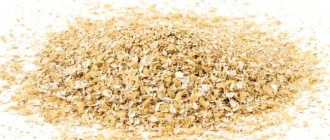Amino acid supplements are widely used because they have a positive effect on human health. Amino acids are the building blocks of protein. The body can synthesize some amino acids itself, but some types can only be obtained from the food that contains them. Therefore, during physical activity, especially in bodybuilding, people drink various sports supplements, such as protein and various protein shakes.
Important: Amino acids in sports nutrition are no different in action, beneficial and harmful properties for the body from those that a person receives daily with regular food. Supplements only simplify the process of obtaining these substances by the body; it does not need to break down protein for a long time, for example, chicken breast, in order to extract from it the necessary microelements for recovery and growth.
Amino acids are divided into two categories - essential and non-essential amino acids. Essential amino acids are compounds that the body cannot produce on its own, but only obtains from food or dietary supplements. Nonessential amino acids are produced by organs, primarily the liver, and can also be obtained from food.
If the body receives an insufficient amount of one of the 10 essential amino acids, protein synthesis will be difficult, which can lead to serious consequences. This means that the consumption of amino acids in the form of sports nutrition will have a beneficial effect on human health. Below we will look in detail at what amino acids are needed for and what they provide to athletes and ordinary people. And you will understand why you need to take sports supplements or carefully monitor the amino acid composition of the foods you consume every day.
Beneficial properties of amino acids
The most significant benefits of amino acids are relief from fatigue, faster weight loss, increased cognitive abilities (improves brain function), reduced inflammation, increased muscle growth, increased endurance and support of recovery processes.
Prevention of inflammatory processes
Valine, leucine and isoleucine, a complex of three branched chain amino acids (BCAAs), have anti-inflammatory properties. May help prevent inflammation in muscles and tissues, allowing for a more productive workout. Adequate intake of these amino acids will help prevent inflammation and the development of arthritis, diabetes, liver disease and other common diseases.

Weight loss
Research has shown that consuming amino acid supplements will not only help burn excess fat, but will also prevent the deposition and accumulation of abdominal fat, which forms around vital organs, increasing inflammation and inhibiting repair processes, hence the fact that consuming supplements can reduce this specific type of fat , is very important in the fight against chronic diseases.
Preventing muscle breakdown
Microtears in the muscles that occur during training heal during rest, which leads to their growth. However, during intense training, muscle fibers can be broken down and used as energy, which is not very good for the body. Sports supplements, especially BCAAs, can help prevent muscle damage by providing resources for healthy protein synthesis.
Improved cognitive abilities
Tryptophan is an important amino acid, is a precursor to serotonin and increases mental performance. By consuming supplements, you can be sure that your body has enough BCAA amino acids to prevent the production of excess tryptophan. If you feel like your mind is foggy in the afternoon, you may be suffering from too much tryptophan, which results in a feeling of mental relaxation.
Relieving fatigue
The energy you expend during the day while going about your business or exercising needs to be replenished. The need for daytime sleep occurs when glycogen stores are depleted. Research has shown that consuming BCAAs and other amino acids throughout the day helps you store more glycogen and use it up more slowly, which will make you more resilient, whether you've been exercising or not.

Accelerating muscle growth
For people who want to gain weight and regularly use sports nutrition, it is important whether it has an effect on muscle growth. Leucine and the other two BCAA amino acids are closely linked to the stimulation of protein synthesis after exercise, so that the muscles have an ample supply of new resources to accelerate muscle growth. The interesting thing is that having enough nutrients in the blood can affect muscle growth in parts of the body that were not actively used during training!
Fast recovery
As you probably know, proteins are the main components of our body that affect the growth and development of muscles, tissues, cells, hair and nails. Proteins play an important role in the recovery process. After injury, illness, surgery or intense exercise, increasing your amino acid intake is extremely beneficial as it can speed up protein synthesis and therefore the rate of healing in the body.
Learn more about the benefits of protein for the body.

Can amino acids cause harm to the body?

As sports nutrition becomes more and more popular, similar questions arise in relation to all supplements. Often the truth is not so easy to find out. The pharmacy most likely won’t tell you anything about this, but sports nutrition sellers need to sell their product and many have doubts about the accuracy of their answers. As a result, we have to figure it out on our own. To begin with, it should be recalled that all protein compounds are composed of amines. Each of us consumes dairy products, eggs, meat, etc. These products contain a large amount of protein compounds, and, consequently, amino acids. It is clear that these foods do not harm your health.
Amino acid supplements are made from natural raw materials and no chemical compounds are used in the technological process of their creation. Essentially, amino acid supplements are proteins broken down into their component parts. It is for this reason that amines are absorbed much faster compared to protein supplements.
When the protein mixture enters the digestive tract, under the influence of special enzymes, protein compounds are broken down into amines, which are then absorbed. This allows athletes to activate one or another process much faster when using amines, which is very important.
However, when using amines, you should remember that you consume a certain amount of them in food. For this reason, it is important to know exactly how much amino acid supplement to take. Otherwise, an overdose is possible. Although in fairness, we note that an overdose of amines is possible rather in theory and practically never occurs in practice.
However, if the conversation is about the dangers of amino acids, then this possibility is worth talking about. If you do overdose, then sleep patterns and problems with kidney function are possible. Scientists have found that these negative effects are possible only when the permissible daily dosage of protein consumption is exceeded by five times. This is very difficult to achieve in practice.
For more information about amino acids and their role in the body, watch this video:
Types of amino acids
As mentioned above, there are 2 main types of amino acids, essential and non-essential. To make sure you're getting enough of both types in your diet, it's important to know which amino acids you can get from food and which are produced in your body.
Replaceable
- Glutamic acid
- Alanin
- Glutamine
- Arginine
- Asparagine
- Glycine
- Tyrosine
- Aspartic acid
- Cysteine
- Proline
- Serin
Irreplaceable
- Tryptophan
- Threonine
- Methionine
- Phenylalanine
- Histidine
- Lysine
- Isoleucine
- Leucine
- Valin
Three essential amino acids known as branched chain amino acids (BCAAs) are very important in muscle growth, fat loss and performance enhancement. When it comes to muscle growth, BCAAs make up 35% of the required proteins. Many people drink sports nutrition containing only BCAAs because the amount of BCAAs in protein supplements or dietary protein sources is limited.
But people who consume foods with complete amino acid composition and eat enough protein (0.8 to 1.5 grams per kilogram of body weight) do not need additional drugs
How to take amino acid supplements correctly?

For this reason, when talking about the possible harm of amino acid compounds, you should be aware of their proper use by athletes. Sports nutrition manufacturers produce amino acid supplements in various forms. The most popular are amines in capsules and wild form. Many athletes are confident that taking amines on an empty stomach is most effective and are mistaken. This is due to the fact that such use of additives can cause irritation of the digestive tract. Thus, amines must be taken with food. If we talk about the time of taking supplements, then in this matter you can trust the manufacturer. For example, BCAAs are most often taken in the morning and after finishing a workout.
Types of amino acids
It is important to understand exactly why amino acids are needed and what types of these substances are used in sports nutrition. In particular, hydrolysates and free amino acids are used. Hydrolyzate is a protein that has been broken down into free amino acids. It is characterized by almost instant digestibility, while it requires very little time to digest, which ensures rapid delivery to the muscles.

Free amino acids are characterized by an almost instantaneous rate of entry into the body. There are special complexes and isolated substances. They guarantee a good result. Amino acids are also divided into replaceable and essential.
Essential amino acids are best for promoting muscle growth. They are not produced independently in the body, which is why they require additional intake from food.
Where are amino acids found?
The sources of these substances are foods high in protein:
- Poultry eggs: chickens, ducks, quails, geese. They contain all the necessary essential amino acids. Protein from one egg covers about 10% (6.3-6.5 g) of the daily requirement for an adult.
- Fish is a source of healthy fats and amino acids. Protein from fish is easily digestible and is recommended for dietary nutrition and for children's menus.
- Animal and poultry meat supplies the body with complete protein and contains cystine and methionine. Poultry and beef contain less saturated fat, which is a source of “bad” cholesterol, than pork.

- Vegetable protein from soybeans provides essential amino acids. Soy products contain little fat, but can affect hormonal levels and provoke the appearance of tumors in people with a special form of cancer that is sensitive to hormones.
- Dairy and fermented milk products are rich in tryptophan. Their use helps strengthen joints and bones.
Some amino acids can be obtained from buckwheat, oatmeal, broccoli, onions and garlic, peanuts, and almonds. The source of glycine is ready-made dishes with gelatin. A balanced diet that includes plant and animal proteins will help you get essential amino acids.

Amino acids for muscle growth
Amino acids are essential for muscle growth. These microelements are directly involved in the process of muscle tissue growth, restoration and strengthening after strength training. In addition, such substances can significantly increase your endurance and strength, restore mental balance after a hard workout, and improve brain function.
The human body contains 20 types of proteinogenic amino acids. Some of them are formed in our body, others (9 types) are irreplaceable - they must be obtained from the outside. There are also trace elements that are not involved in the formation of muscle tissue, but are necessary for normal metabolism.
Additionally, those people who are actively involved in sports and want to build voluminous, sculpted muscles should take amino acids. This substance is useful not only for muscles, but also for the rapid recovery of the body after intense exercise in the gym. Trainers recommend taking sports nutrition to beginners who are just starting to build bulky muscles. The dietary supplement should be taken several times a day, without breaks.
To prevent muscle tissue from being destroyed, a person must eat well 5-6 times a day. If you do not have such an opportunity - you travel often, are constantly busy at work, then taking dietary supplements will also not be superfluous.
Who needs to take amino acids

Anyone who wants to gain muscle mass and reduce the recovery period after training should take amino acid complexes.
There are special courses aimed at increasing the volume and density of muscle tissue, depending on the type of training chosen.
For beginners, in order to activate muscle growth, we can recommend consuming the amino acid in continuous courses three to four times a day.
For those who train while constantly traveling and who find it difficult to maintain a six-meal diet or prepare protein mixtures, it is especially convenient to use amino acid tablets.
So, amino acid complexes are necessary for:
- Increasing the effectiveness of training, accelerating the growth of muscle tissue.
- Suppresses appetite, burns fat tissue.
- Reducing muscle pain after exercise.
- Speeding up the recovery period after training.
- Enriching the diet with protein.
Amino acids can suppress appetite and thus help burn unwanted fat deposits. In order to lose weight, amino acids should be taken three to four times a day.
Method of application of amino acids
• Doses
They depend on the specific substance and the person’s condition and usually range from tens to hundreds of milligrams. Infovitamin.ru advises: unless there are special indications, taking a single amino acid is not recommended - this is fraught with nutritional imbalance. If it is still prescribed, the course can only be continued for more than three months under the supervision of a specialist.
• Application diagram
Amino acid supplements designed to compensate for nutritional deficiencies are most effective when taken with meals. For other purposes, the time of administration does not matter, although for asthenia it is better to take supplements in the morning on an empty stomach.
Amino acids: reviews
People taking amino acid preparations speak positively about them. Taking amino acid supplements is a relatively safe way to lose weight and maintain youth and beauty. Subject to the recommended standards and preliminary consultations with specialists, supplements do not harm the body; on the contrary, they increase muscle tone and fill with strength.
The cost of imported additives is higher than those produced in Russia with almost equal effectiveness. The maximum effect from taking supplements, according to customer reviews, can be achieved with a protein diet and active physical activity.
Contraindications and harm
Amino acids are the components of proteins that make up our muscles.
Articles regularly appear about the side effects of taking amino acids. But in the course of numerous studies, contraindications and possible harm were not established. Even if the specified dosage is exceeded many times, the side effect is minimal.
Keep in mind that the human body is able to absorb only 5-6 grams of amino acids within an hour. Regular intake of larger amounts may have a negative effect on kidney and liver function.
Why are amino acids needed in bodybuilding?
In professional sports, bcaa amino acids are actively used. Why do these people need them? This complex includes several amino acids that help the athlete quickly build up his muscles. In this case, the result will appear faster than for those who do not take BCAA amino acids . The course depends on your goal, individual parameters and how long you want to build muscle mass. However, when choosing a course, it is best to consult with an experienced trainer and doctor.

Essential amino acids
These substances are necessary for physiologically normal human life. If they are deficient, normal synthesis of protein cells and muscle mass growth are impossible. These include the following substances:
- Isoleucine, leucine are involved in the production of protein cells. Leucine helps strengthen the human immune system. Isoleucine is used as an alternative source of energy in metabolic processes and is part of muscle fibers.
- Phenylalanine is necessary for the production of collagen cells and promotes the production of norepinephrine, which transports impulses from nerve cells to the brain.
- Valine is required for tissue regeneration, it helps improve coordination and reduce sensitivity to changes in ambient temperature.
- Methionine promotes the regeneration of kidney and liver cells.
- Lysine and vitamin C produce carnitine, which is necessary to supply cells with oxygen.
- Tryptophan is necessary for the synthesis of the joy hormone serotonin, which is responsible for the psycho-emotional state, improves sleep, appetite, and reduces fatigue.











